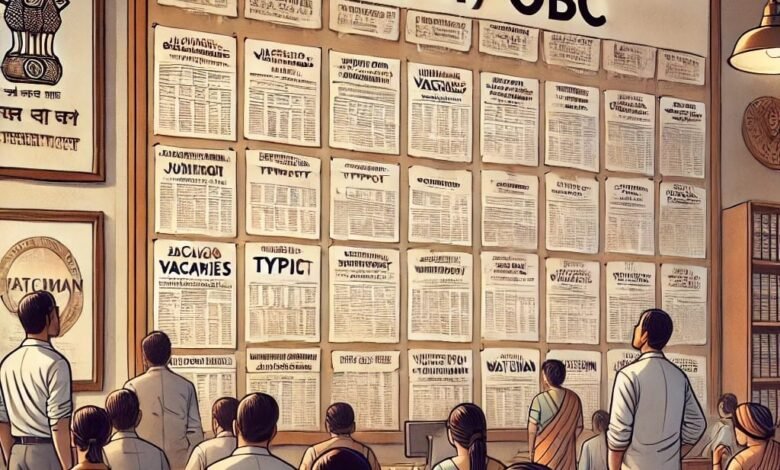
Special Report : Despite the increasing backlog of 40 lakh vacancies in central government jobs reserved for SC, ST, and OBC communities, the central government remains silent on the issue, with no significant recruitment drives to fill the gap. The Samata Sainik Dal, led by State President Bethala Sudarshanam, demands immediate action, urging for an end to what they describe as deliberate delays rooted in caste bias.
Unemployment and the caste issue
Unemployment in India is not just an economic challenge but a significant caste issue, disproportionately affecting marginalized communities. As per the India Employment Report 2024, India’s working population has seen a steady rise, but the employment rate has failed to keep up. Unemployment jumped from 7% in May 2024 to 9.2% in June 2024, with female unemployment alarmingly reaching 18.5%, well above the national average. For the SC, ST, and OBC communities, the situation is particularly dire, as backlog vacancies in central government jobs reserved for them remain unaddressed.

Key backlog vacancies: A persistent Issue
India’s central government services have nearly 9.64 lakh vacant posts out of 40 lakh sanctioned positions, with a substantial portion reserved for SC, ST, and OBC candidates. Despite these vacancies, there is little progress in recruitment, especially in key departments such as Railways, Home Ministry, and Civil Services.
Vacancies in Railways: Over 2.63 lakh posts remain unfilled in 2021.
OBC Backlog (2020): 5,403 posts, up from 8,694 in 2018.
ST Backlog (2020): 4,405 posts, down from 6,251 in 2018.
Vacancies in Home Affairs: 1.14 lakh posts, including positions in CRPF, BSF, and Delhi Police in 2021.
SC Backlog (2019): 6,563 posts.
ST Backlog (2020): 2,821 posts.
Vacancies in Defence: SC Backlog (2016-2020): Increased from 1,268 to 3,888 posts.
ST Backlog (2016-2020):** Between 951 and 1,167 posts.
Departments like Revenue, Education, and Atomic Energy also continue to struggle with long-standing unfilled vacancies across all categories.
Impediments to filling backlog vacancies
Absence of timely recruitment drives: Even when reserved posts remain vacant, the central government has been slow to conduct special recruitment drives to address the issue. These delays prevent SC, ST, and OBC candidates from accessing opportunities they are entitled to.
Bureaucratic and caste-based delays: Critics argue that caste-based animosity within key bureaucratic positions has contributed to the delay in issuing recruitment notifications. The Samata Sainik Dal claims that influential “Manuwadis” in power control recruitment boards, actively hindering progress in filling the 40 lakh vacant posts.
Privatization and outsourcing: The growing trend of privatization and outsourcing within government sectors has further worsened the backlog issue. Permanent jobs are being replaced by contract work, diminishing the number of available reserved positions. This shift is seen as a deliberate attempt to avoid giving jobs to marginalized communities.

Legal and policy challenges: Ongoing legal disputes regarding the implementation of reservation quotas also contribute to the inaction. Without clear policy changes, backlog vacancies continue to rise without resolution.
A Constitutional right under threat
Articles 15(4) and 16(4) of the Indian Constitution guarantee the right to reservations for SC, ST, and OBC communities, enshrined by Dr. B R Ambedkar. Yet, these rights are under threat due to privatization, outsourcing, and deliberate inaction. The Samata Sainik Dal, under the leadership of Bethala Sudarshanam, argues that these tactics are intended to destroy representation for marginalized communities.
With politicians like R Krishnaiah and Mandakrishna Madiga remaining silent on the issue, the organization calls for mass revolt and immediate government action to address the growing backlog.
The backlog of reserved vacancies for SC, ST, and OBC candidates is not just a bureaucratic oversight but a deep-seated social and economic injustice. As the government continues to ignore the issue, it is time for collective action to demand accountability and the fulfillment of constitutional promises.
The views expressed in this article are of Bethala Sudarshanam, State President, Samata Sainik Dal, Andhra Pradesh.








